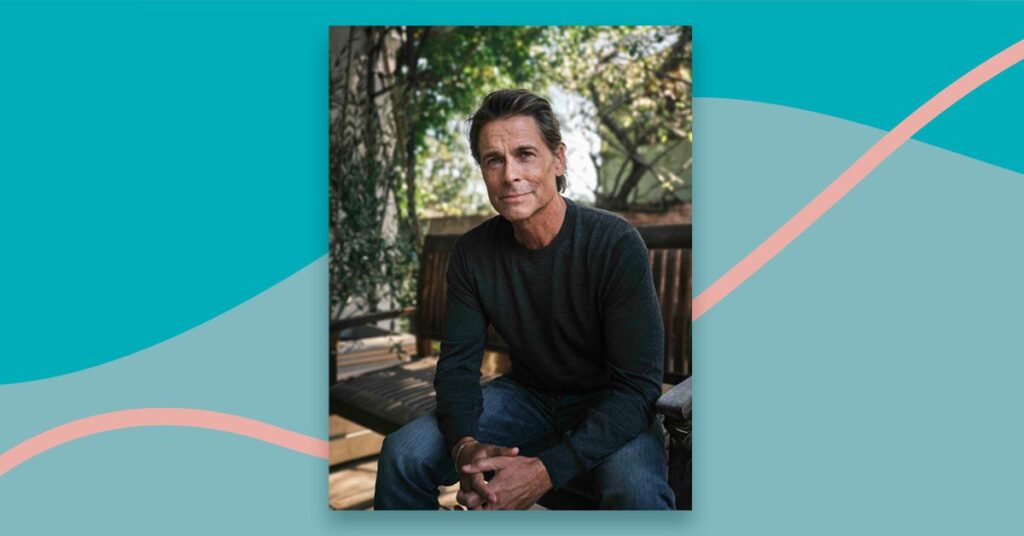- Rob Lowe shares how three generations of women in his family passed away from breast cancer.
- The acclaimed actor has partnered with Eli Lilly to spread awareness about the benefits of cancer clinical trials.
- Lowe’s grandmother benefited from participating in two clinical trials for breast cancer.
Iconic actor Rob Lowe credits his grandmother, Mim, for his love of reading.
“My earliest memories are her reading me my favorite book, ‘Peter Rabbit,’ while she sipped her Sanka,” he told Healthline. “I always wanted to have my own coffee, so she would make me a cup of milk and then put a little drop of Sanka in it so it would look like coffee.”
When he was 10 years old, Mim was diagnosed with breast cancer, the same disease her mother had endured.
“It was almost a death sentence,” Lowe said.
After a cancer recurrence, Mim entered a clinical trial, which Lowe said extended her life. Years later, she participated in a second clinical trial. “Both times had tremendous, tremendous success, and it was a very pivotal moment in my upbringing that I always remember,” he said.
Following his grandmother’s diagnosis, Lowe’s mother was also diagnosed with breast cancer. He said her standard of care was an improvement compared to his grandmother’s.
“There are amazing advances in medicine, particularly breast cancer, and what I’ve seen going through this three times is tremendous enhancements,” Lowe said, noting the impact clinical trials have had on cancer treatments.
In honor of the three generations of women he lost to breast cancer, Lowe teamed up with Eli Lilly to bring awareness to the urgent need for more people to participate in cancer clinical trials.
“I thought this was a great way to remember and keep my grandma Mim’s memory alive,” he said.
Clinical trials offer hope to people with cancer. For instance, a new breast cancer vaccine is showing effectiveness in clinical trials at preventing and treating breast cancer. The vaccine works by training the immune system to recognize and eliminate cancerous cells before they develop into invasive tumors.
“Participating in a trial can provide access to cutting-edge drugs that are not yet on the market, improve quality of life, and advance science. The trials of today are the treatments of tomorrow,” Davendra Sohal, MD, associate director for Clinical Research at the University of Cincinnati Cancer Center, told Healthline.
Clinical trials are used for all types and stages of breast cancer. People can join any phase of a trial if they meet the criteria, which is based on multiple factors, including type of disease, age, medical history, and current medical condition.
- certain beliefs or lack of trust
- distance to trial sites
- insufficient health insurance coverage
- language barriers
- immigration status
In addition to barriers, new treatments developed in clinical trials face a long road before they’re approved for use in the real world.
“New treatments are studied for lengthy periods of time, typically years, before they receive FDA approval,” Irene M. Kang, MD, medical director of women’s oncology at City of Hope Orange County, told Healthline. “This is why clinical trials are critical for studying new drugs, medical devices, products, and additional treatments before they may become standard of care.”
If you want to know more about clinical trials, Lowe encourages you to ask your doctor.
“[There’s] so much hope out there, and it’s not an end-of-the-road ask. If it’s the beginning of the road, ask your doctor,” he said.
Healthline spoke with Lowe to learn more about the women in his life who were diagnosed with breast cancer and his passion for participating in clinical trials.
This interview has been edited and condensed for clarity and length.
Lowe: My number one thing is that all patients have to advocate for themselves. It is the number one game changer in the path you have ahead of you — your ability to advocate, to ask questions, to champion, and guide your own recovery is critical.
Doctors are only as good as the information they get and the questions that they’re asked. One of them that a lot of people don’t ask is: Is there a clinical trial that can be helpful for me? It’s very simple. Less than 7% of patients do it. That number needs to be much, much, much higher.
I would also add that I think one of the reasons that there’s some [hesitation] is that I think people feel like “well, if I’m in a clinical trial, maybe I’m going to get a placebo and I actually want treatment.”
Well, in cancer clinical trials, you get the standard of care. You’re not going to not get the standard of care. You may get a cutting-edge new care in addition, and to me, that’s a no-brainer.
Source link : https://www.healthline.com/health-news/rob-lowe-clinical-trials-cancer-research
Author :
Publish date : 2025-07-06 06:06:00
Copyright for syndicated content belongs to the linked Source.
